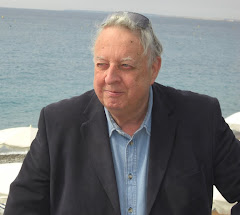When it comes to the great German
orchestral classics — Haydn, Mozart, Beethoven, Schubert, Brahms,
Wagner, Bruckner — I have a distinct preference for performances
conducted by the great European conductors of the past: Wilhem
Furtwängler, Günter Wand, Carl Schuricht, Eugen Jochum, Hans
Knappertsbusch, Karl Böhm, and Otto Klemperer. They always appear to
embrace a long classical tradition of performing the music, something
that escaped the Italians such as Toscanini, Cantelli, Chailly or
their American-based furioso imitators.
Otto Klemperer (born 1885
Breslau, Germany. Died 1973 Zürich, Switzerland) was one of the old
school German conductors of the first half of the past century. In
Bach and Mozart he was somewhat different from his German confrères
in preferring smaller forces; he refused to record Bach's Mass in B
Minor for Walter Legge, since Legge wanted him to use the full
Philharmonia Choir. Klemperer recorded the Mass after Legge's
departure, but with a small choir of 40 voices. The 1967 recording of
the B Minor Mass by Klemperer is still my favourite. Klemperer in
Mozart had no truck with “period practice” or “original
instruments” (Gott sei Dank) and in this he was typical of
his generation. Listening to the darker hues of the Prague Symphony
(recorded March 1962) one wonders whether anyone ever conducted this
more effectively than Otto; and the refurbished sound is really top
class.
In the period 1956-62, Klemperer
recorded most of Mozart with the Philharmonia. I cherish these
recordings that show Klemperer's sense of texture, structure, and
rhythm, and his insistence on a forward wind band really pays
dividends in Mozart. In 2012 EMI (as it then was) began to re-master
some of its enormous back-catalogue classics with a specialist team
as part of a Super Audio CD project of rehabilitating the classics of
the EMI repertoire. The 60 year old orchestral recorded sound comes
over as excellent and a fine tribute to the late Walter Legge and
Douglas Larter. Alas, the only two albums I have of these SACD
re-masterings are Mozart's last six symphonies (with Klemperer) and
Bruckner's 8th and 9th Symphonies with the
Vienna Philharmonic under Carl Schuricht (1961, and 1963).
Soon after these remarkable SACD
re-incarnations were released, EMI was sold to the American Warner
company, where careful investment in back repertoire was not on the
board. For the back repertoire acquired from EMI, Warner seems to
have had the philosophy of “pile 'em high and sell 'em cheap”
(ROI, and all that), whilst fiercely protecting its “intellectual
property” against all comers such as Pristine Audio who might want
to re-furbish the sounds, recordings and artists from decades before;
real dog in the manger stuff. So we were offered giant Klemperer /
Boult / Beecham etc. boxes from Warner with no attempt at
re-masterering or re-furbishing the sound. I am eternally grateful
that my two Klemperer and Schuricht albums survived the sale to the Americans.
